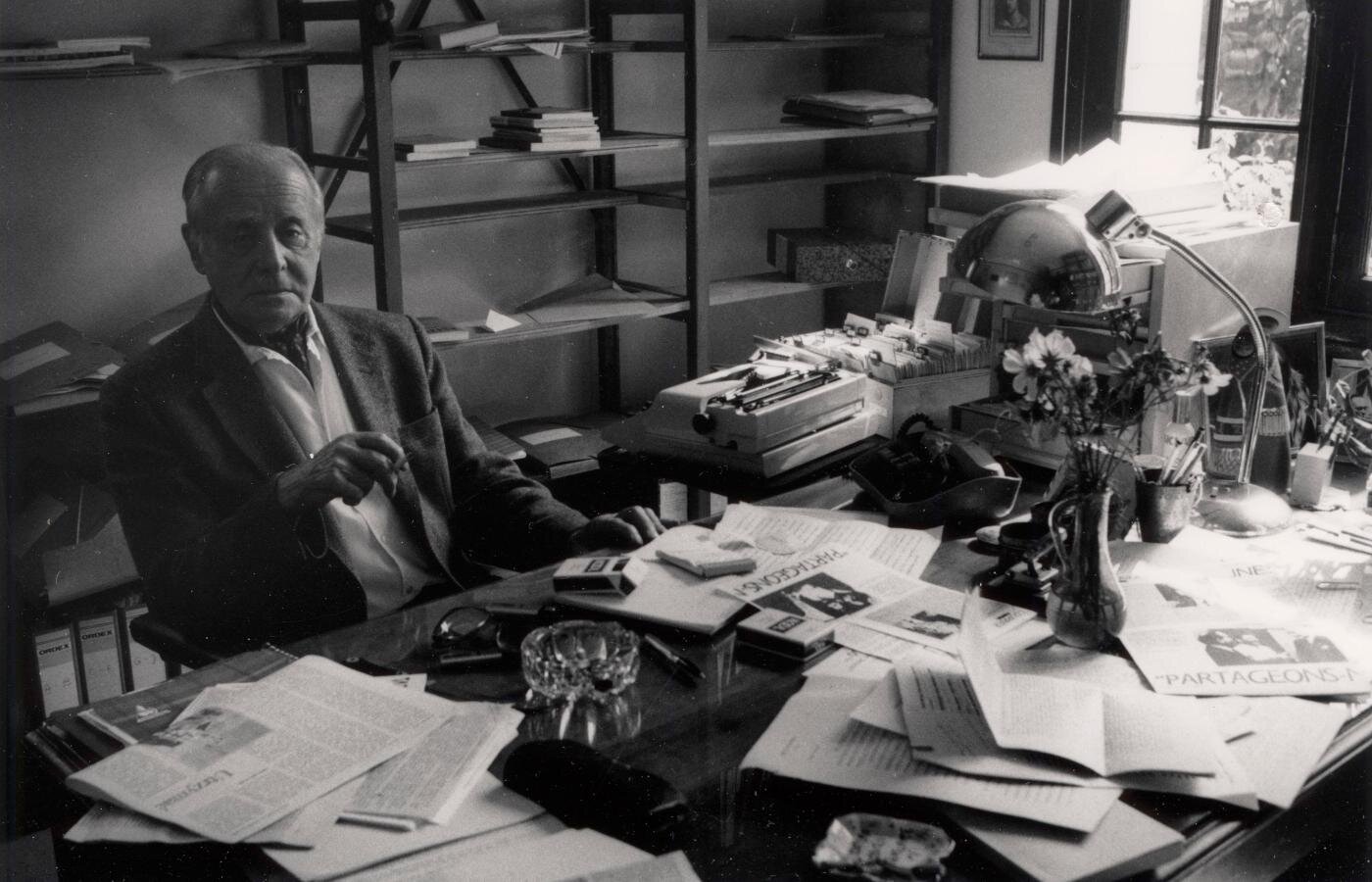Georgetown Examines Kultura’s Importance to the Peace of Eastern Europe
The event examined the life and legacy of Jerzy Giedroyc, chief editor of the prominent Polish-émigré literary-political journal Kultura. (Tygodnik Polityka)
Georgetown University’s Department of Polish Studies hosted "Jerzy Giedroyc and his Achievement: The Legacy of Kultura and its Books" to examine Polish literature and history in the context of eastern Europe on October 11. It was jointly organized with the Polish and Lithuanian embassies.
The event's main focus was a discussion on the life and legacy of Jerzy Giedroyc, a chief editor of the prominent Polish-émigré literary-political journal Kultura.
"Kultura was vital for exiled Poles, providing a form of discussion with Poland, occupied by the communist regime in the post-World War II world," explained Iwona Sadowska, the director of Polish Studies at Georgetown.
Kultura’s prominence in the anti-communist movement stemmed from its publishing of literary novels, such as George Orwell's 1984, which were smuggled to Poland under a Soviet propaganda poster reading "Za Mir!" (which translates to "For Peace!"). Kultura quickly became a tool used to educate the Polish people on events outside the communist bloc.
"We survived as a Polish culture because of Kultura and the work of Jerzy Giedroyc," said Marcin Przydacz, Poland’s deputy minister of foreign affairs.
To celebrate the significance of the event, Sadowska highlighted the fact that it took place the day after Polish writer Olga Tokarczuk, famous for her award-winning novel Flights, won the Nobel Prize in Literature.
A discussion with four panelists, including diplomats, editors, and scholars, occupied the majority of the event. The panelists shared a collective appreciation of literature and journalism critical of Soviet sovereignty in Poland and other nations trapped behind the Iron Curtain. The panelists also stressed the impact of Giedroyc's Doctrine on reconciliation among Central and eastern European nations. The doctrine, developed by postwar émigrés including Giedroyc himself, outlined the need for Poland to avoid territorial disputes with other European countries and to accept post-World War II border negotiations.
This is the core of Giedroyc's legacy, according to retired ambassador and panelist Richard Kauzlarich. "Giedroyc was a historical figure that comes out of a particular circular club which pushed for reconciliation, and his expertise can be applied to other areas of conflict where reconciliation is necessary," Kauzlarich explained.
Kauzlarich added that reconciliation is commonly used as an essential diplomatic strategy today, pointing to Ethiopian Prime Minister Abiy Ahmed's work in ending the two-decade-long postwar stalemate between Ethiopia and Eritrea through reconciliation, which recently won him the Nobel Peace Prize. "Giedroyc and Ahmed's promotion and use of reconciliation act as bookends of this strong figure from the Cold War period and a younger person from a developing country who is trying to achieve the same thing," Kauzlarich explained.
By analyzing Giedroyc's work in Kultura, the event highlighted the value of literature and journalism to promote peaceful reconciliation across cultures and time periods. Kauzlarich concluded, "it's interesting to see how it's not really a question of culture but of understanding different nationalities."

